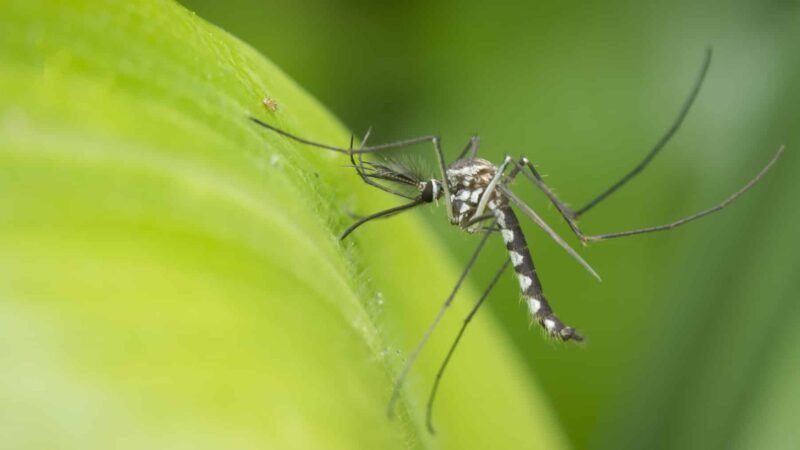Día Internacional de la Oposición a los Transgénicos 2025

Every year on April 8th, the International Day of Opposition to Genetically Modified Food is observed, a global initiative that aims to raise awareness of the risks and dangers of genetically modified foods.
This day was founded in 2003 by a group of activists who are fighting against the introduction of genetically modified crops in Europe.
Genetically modified foods are those that have been genetically altered to improve their production, resistance to pests or diseases, or to add specific nutritional properties.
While some proponents of GM foods argue that they can help feed a growing world population, others oppose them due to concerns about their safety and environmental impact.
Concerns surrounding genetically modified foods include potential negative effects on human and animal health, reduction of genetic diversity, and the creation of new diseases and pests.
Additionally, it has been demonstrated that GM crops can have a negative impact on the environment as they can contaminate soils and water and affect populations of insects and other animals.
Opposition to GM food has been a hot topic worldwide in recent decades. In many countries, protests and demonstrations have been held to call for clear labeling of GM foods and greater transparency in their production and regulation.
In some countries like France and Germany, GM crops are completely banned while other countries like the United States and Canada have adopted various permissive policies for their use. Nevertheless, the fight against GM foods remains an important issue for many activists and consumers around the world.
International Day of Opposition to Transgenics 2025
Today is International Day of Opposition to Transgenics 2025, an ephemeral event that occurs every April 8th and aims to warn the global population about the serious dangers hidden behind the use of these crops.
As we commemorate International Day of Opposition to Transgenics 2025 this year, it is important to understand why genetically modified organisms, commonly known as GMOs, pose a threat to all living beings on the planet.
Why Not Say GMO?
They are expensive and tend to monopolize
On this International Day of Opposition to Transgenics 2025, it is crucial to remember that transgenesis and modern biotechnologies allow for the patenting of plant varieties. This means that GMOs cultivated in our fields, their seeds, and the food derived from them are covered by patents from agribusiness giants.
This enables agrochemical companies to surpass living beings and monopolize nature, but it also leads to the monopoly of food in private interests, a trend that jeopardizes food sovereignty.
Furthermore, since patents extend to products derived from these seeds, this system of privately owned seeds implies significant limitations on sharing, reproducing, and reusing, which can particularly harm small businesses and seed farmers.
They cannot coexist with non-GM products
It is essential for farmers to be able to continue producing non-GM crops, and this is one of the key aspects of International Day of Opposition to Transgenics 2025.
This is particularly crucial for advocates of organic farming, as contamination can lead to the loss of certification for organic foods and the prohibition of sales with an organic label.
However, pollen cannot be contained, and numerous scientific studies have shown that it is impossible to prevent genetic exchanges between a genetically modified plant and other genetically modified plants of the same species grown in the same geographical area.
This means that growing GM corn in a region prevents organic or conventional producers from guaranteeing that their agriculture is free of GMOs.
Enhancing to increase pesticide use
Some GM crops can produce their own insecticide to combat specific pests. However, this leads to more problems. The first is that target insects can become resistant to that toxin, reducing its effectiveness over time.
Additionally, because the plant continuously produces this type of insecticide, other insects that may come into contact with it in the environment can be contaminated, affecting the entire ecosystem. In organic farming, which avoids monocultures and agrochemicals, this issue does not arise.
They are responsible for superweeds
The existence of superweeds, created by crossing GM plants resistant to herbicides with wild plants of the same family, is well-documented. This is a point to remember on International Day of Opposition to Transgenics 2025.
These new hybrids become resistant to common herbicides, leading large corporations to resort to increasingly potent and dangerous chemicals to control them.
They will not solve the world’s hunger problem or the environmental and energy crisis
These are two of the main arguments used to justify GMOs, but the reality is starkly different. Products that generate their own insecticides may not be healthy for anyone consuming them.
Furthermore, as demonstrated, not only are they expensive but they are also in private hands, with a sole purpose of maximizing profits. This reality is completely at odds with the goal of ending hunger worldwide.






